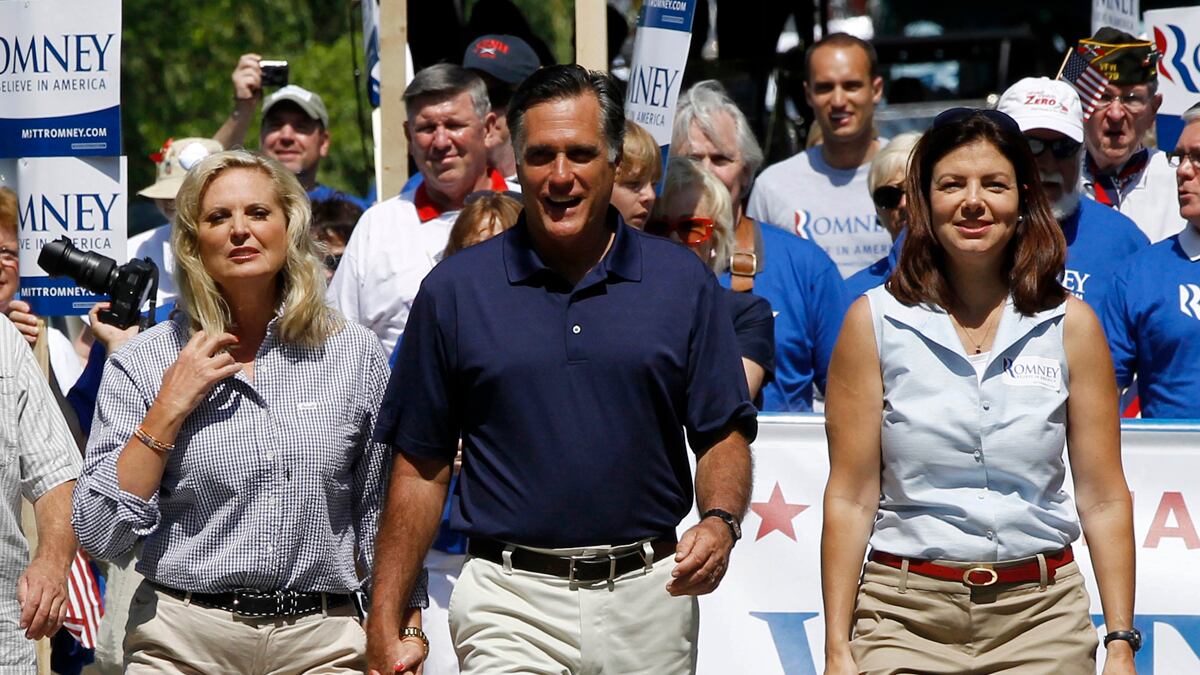Off with their heads! That’s essentially the call from influential conservatives such as Rupert Murdoch and businessmen like Jack Welch who tweeted that they want to see a Team Romney shake-up at the highest levels. It’s a reflection of frustration at a campaign that can’t seem to fully capitalize on a weak economy and vulnerable incumbent.

But not so fast. Loyalty is the indispensable quality in political campaigns, and Romney’s campaign is staffed by people who the candidate trusts—and vice versa.
Many members of the senior leadership, such as Eric Fehrnstrom, have been with Mitt Romney since the Massachusetts governorship. They know their candidate as a person—not just a political commodity. And losing that connection could be disastrous on both a morale and managerial level at this stage of a campaign.
ADVERTISEMENT
Washington insiders are angry at the insularity of the first Republican presidential campaign based in Massachusetts. Some of the frustration stems from simple envy—a desire to get in the game and financially benefit from fat consulting contracts.
It’s fair to say that the North End of Boston doesn’t offer the best perspective on the conservative pulse, which beats strongest in the red states of the former Confederacy. But it can offer perspective into the mind of independents and swing voters who Romney will have to win over to seize the White House.
In addition, the campaign’s chief strategist, Stuart Stevens, is a sometime novelist and extreme athlete who has described the political consulting arena as “a total profession of charlatans”—and he edged out several rivals to helm this campaign, earning their dislike and adding to the Republican Party rumblings. But he is a creative and tenacious strategist with Mississippi roots who can claim at least one White House win.
So while the Romney campaign has certainly been far from flawless, give this team some credit. They got someone who was once a Massachusetts Moderate the GOP nomination two years after the Tea Party insurgency. A man whose core government accomplishment in four years as governor was enacting individual mandate-driven health-care reform is now leading a party that believes that policy is tantamount to socialism. This is no small feat.
At the end of the day, the problems of the Romney campaign are direct reflections of the candidate himself. For example, the campaign’s confusion over the question of whether the individual mandate is a penalty or a tax reflects Mitt Romney’s own contradictions on this core issue.
Here is Romney writing in 2009, trying to persuade President Obama to abandon the public option (done) by embracing the individual mandate (done) and following the Massachusetts model:
“Our experience also demonstrates that getting every citizen insured doesn’t have to break the bank. First, we established incentives for those who were uninsured to buy insurance. Using tax penalties, as we did, or tax credits, as others have proposed, encourages ‘free riders’ to take responsibility for themselves rather than pass their medical costs on to others. This doesn’t cost the government a single dollar.”
Translation: Romney himself called the Massachusetts individual mandate’s punitive backstop a “tax penalty”—so no wonder his team’s message is confused. They have to square a circle, balancing Romney’s record with political expediency in a different context. This can be accomplished with a salesman’s conviction in making a deal in the moment, but it is difficult to make it fit within the structures of reason.
Tone comes from the top of any organization. There are campaign intrigues that can distract energy from overarching focus, and cancerous personalities should be cut out of the organization immediately. But calling for a top-line campaign shake-up in July, after the team winning the nomination would be seen—correctly—as a sign of weakness, a spooked candidate grasping for solutions. Cool and calm is how we like our presidents, focusing on following through on a plan and making necessary adjustments to account for changing facts on the ground.
Team Romney could stand to broaden its base of campaign advisers to help solidify the party around his candidacy. The policy team—as recently detailed by Eli Lake—desperately needs strengthening and increased specifics to help make the candidate a credible potential president. The strategy of “attack and distract” is not sufficient. People need and deserve to know what a potential president is for, not just what he is against—particularly when his heated dislikes seem transparently political calculations rather than matters of principle.
Ultimately, Mitt Romney is responsible for both the successes and failures of his campaign. That is especially true for a candidate campaigning on executive prowess and managerial expertise. Influential outsiders calling for staffers’ heads on a pike is itself a power play that does not reflect practical campaign reality. Absent scandals that become distractions, they should stay. Blaming staffers is like blaming the equipment in sports—the player is responsible for his performance.






